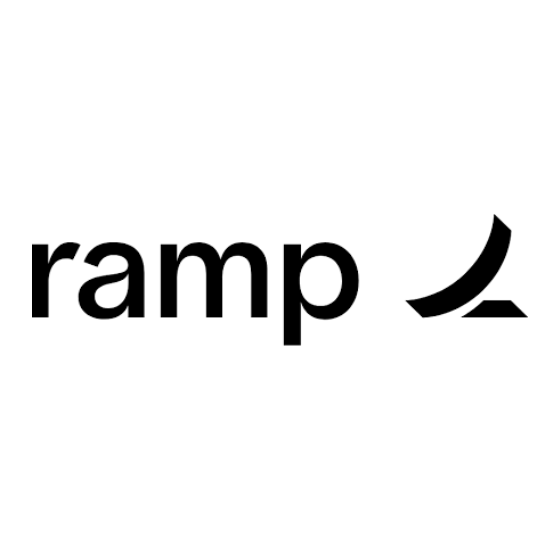With so many types of accounting software out there, it's only natural to feel a little overwhelmed.
Maybe you need a program that's best for standard small business operations… or perhaps a program that’s ideal for companies with big growth plans.
Either way, you can't start your search without knowing where to begin. After years of testing software across all kinds of industries, I’ve learned that the best fit isn’t just about features—it’s about finding something that works with your comfort level, your goals, and the way you like to run your business.
Here's what you need to know to cut through the marketing talk & choose the tool that will fit your technical skills, business goals, and preferred operating methods.
Understanding Accounting Software
Accounting software refers to any kind of tool that can be used to track financial business activities and manage account ledgers.
The actual functionality can vary but these programs generally:
- Are designed specifically for business accounting functions
- Offer basic general ledger, accounts receivable, and accounts payable management options
- Can handle things such as inventory management, pricing, billing, and collections
- Offer financial report template generation options
- Can comply with various accounting rules and regulations, such as GAAP and IFRS
- Can assist with tax preparation, such as by compiling information to be reported on tax forms
- Can automate accounting tasks, such as payroll and billing
Before buying a tool, it's important to know what classifies as accounting software. Some businesses may use other data entry tools for accounting software, such as Microsoft Excel or Google Sheets.
While it's true that a brand new company, or one that will always have limited operations, can utilize spreadsheets for tracking cashflows, these products aren't technically considered accounting software.
Types of Accounting Software
Not all programs have the same areas of focus. Before jumping into the selection process, figure out the accounting software type that's best suited for your business, such as:
General Accounting Software
General accounting software is the most basic option out there and is intended to cover the needs of most standard businesses. Some of these needs include:
- Income and expense tracking, including accounts receivable and payable
- Basic reporting options, including financial statements and analytical tools
- Cash management, including bank account balances, bank reconciliation, cash flows, credit cards, and currencies
- Inventory management and pricing tracking
- Transaction management
- Error-checkers to ensure numbers are balanced and in line
General accounting software is generally available in two forms: cloud-based and on-premise. Here's a breakdown of each option:
Online/Cloud-Based Accounting Software
Online accounting software requires purchasing a subscription for access to the software; at no point do you outright own the tool.
But, among cloud accounting software's many benefits, flexibility stands out the most:
- Employees can log in on myriad devices, from any location
- Storage can expand and new licenses can be added as needed, as the business grows
- New features can be rolled out in real-time, as the vendor adds them
While upfront investment is much lower than on-premise software, the total cost over time will be more expensive, as you're paying for the tool vendor's updates and maintenance as well.
Benefits:
- Log in from anywhere.
- Share data online, securely.
- Access from any device.
- Real-time updates to the software.
Best Suited For:
- Most businesses — this is the most popular type of accounting software available
Examples:
- FreshBooks
- Oracle NetSuite
- Kashoo
Along with the above examples, I also rounded up my top picks for online accounting software to help paint a better picture of the options available:
On-Premise Accounting Software
On-premise accounting software refers to accounting tools that are purchased upfront, installed on local servers, and maintained by the customer.
This type of software is less common nowadays, as most companies prefer a cloud-based software service. However, if you're restricted by data regulations or require extensive customization, this is a good option.
Benefits:
- One-and-done purchase
- Full control over data
- Extensive customizability
Best Suited For:
- Large companies with dedicated servers, or companies operating in highly-regulated industries (such as medical, or healthcare)
*Examples:
- QuickBooks
- Odoo
- Xero
* All of these tools have an on-premise offering in addition to their more popular cloud-based offerings.
Billing and Invoicing Software
Billing and invoicing software automates the process of creating, sending, and tracking invoices for services rendered or products sold. It's considered a type of accounting software because it handles financial transactions, streamlines the accounts receivable process, and integrates with other financial systems to maintain accurate records.
A more specific product than most accounting software, this is a good tool for companies that don't need the full kit and caboodle (or just need extra billing support).
Benefits:
- Automates invoice generation and payment reminders.
- Reduces human errors in invoicing.
- Provides real-time tracking of invoice status and payments.
Best Suited For:
- Small businesses who only need specific functionality, or e-commerce companies that need additional help in this area.
Most accounting software offers billing and invoicing features, however, here are some of the best solutions I've encountered that focus more on these features:
Accounting Software for Freelancers
Similar to general accounting software, but for individuals.
These programs are often more simplistic, and they usually aren't particularly good for growth or a more formalized business. Due to the simplicity involved, you can usually get away with using free accounting software or accounting software for freelancers.
Nonprofit Accounting Software
The nonprofit and government accounting space can be extremely particular, at least from the perspective of accounting processes.
In general, nonprofit organizations (NPOs) use a process called fund accounting, which is quite different from simply maintaining a general ledger or tracking cash in an account. As such, programs specifically targeting nonprofits are the best choice.
Finding the right accounting software for nonprofits can be tricky, but here are a few standout options to help you get started:
Enterprise Accounting Software
Enterprise accounting software is a comprehensive solution designed to manage a large organization's entire financial operations. It integrates various business processes, such as accounting, finance, procurement, project management, and human resources, into a single system.
Benefits:
- Centralizes data from multiple departments.
- Tailors features to specific business needs.
- Can handle a large volume of transactions
- Provides in-depth financial analysis and reporting.
Best Suited For:
- You guessed it — large enterprises. Whether operating in one country or across the globe, most businesses using this type of software have multiple locations and/or business units.
Examples:
- Tally
- SAP
- Oracle NetSuite
Invoicing Software
Invoicing software is intended to fill a singular role: generating, sending, and collecting money from invoices.
If a larger accounting program with detailed invoicing functionality exceeds your budget or business needs, specialized invoicing software can be a plus.
On the other hand, for those with low to moderate invoicing needs, such as tracking online payments and purchase orders, investing in a standalone program versus what basic accounting features can do is likely overkill.
Knowing where you and your business fall is necessary for choosing the right solution. Once you figure that out, come back to this list to start your search.
Custom Accounting Software
Custom accounting software is built specifically to match your business’s unique requirements. Unlike off-the-shelf tools with preset features, it’s developed, or heavily customized, to fit your workflows, industry standards, and internal systems.
This type of software is best for companies with highly specialized accounting processes, unique compliance requirements, or complex legacy systems that don’t integrate well with mainstream platforms.
You'll likely turn to custom accounting software when:
- You've outgrown your traditional accounting tools and need more advanced, scalable solutions.
- Your industry has unique compliance, reporting, or tax standards not supported by general accounting software .
- You want to tightly integrate accounting with proprietary tools, ERPs, or custom business logic.
- You're looking for complete control over user roles, data storage, and workflow automations.
Accounting Software Benefits
For any company with growth on the horizon or that simply wants to make sure financial records are complete, accurate, and organized, the best accounting software is a must-have.
Through the use of accounting software, you can:
- Manage accounts payable, accounts receivable, cash, and inventory tracking based on industry needs
- Generate financial statements for both financial reporting and business analysis
- Prevent errors with reconciliation
- Address unique business needs, such as fund accounting for NGOs
- Save time through automation, such as by generating invoices or organizing payroll
- Grow business activities quickly and easily with the option for cloud-based platforms
In addition, specialized software products (like accounting CRM and accounting ERP software) can focus on key niche needs that businesses may have, such as strong payroll processing and invoice management, without including holistic accounting solutions and the associated price tag increase — a win for any business.
Key Features of Accounting Software
Not all types of accounting software solutions are made equal, but most offer the same basic functions — to a point.
Here's everything you're likely to see:
- Records & Reports Management
- Financial Analysis
- Automated Tax Filing
- Billing & Invoicing
- Payroll Management
Records & Reports Management
Records and reports management can be an important part of bookkeeping operations and is fairly standard among accounting software.
Any good software option will ensure clean, accurate record-keeping, and the ability to generate standard business reports, such as invoice statements and balance sheets. However, the extent to which reporting can be customized can vary from software to software.
Financial Analysis & Decision Making
The ability to use financial data to guide decision-making is key for running a good business. However, the extent to which analytics are available can vary.
Some programs make it easy to build out custom forecasting dashboards, track specific pain points, and build on-demand report templates, while others don't. If this is a priority, look into the most interesting tools' offerings before you buy.
Automated Tax Filing
Business taxes, particularly as a business grows and expands, can be anything but easy. As such, accounting software that can help you is a big benefit.
That said, this isn't necessarily a common feature of basic products, especially for businesses with complicated tax requirements.
Whilst many accounting systems cover tax management, such as estimating tax liabilities or calculating tax on things such as payroll, goods sold, and sales tax, they don't always include tax filing.
If you want an accounting program designed to minimize time commitments and walk you through A-Z at tax time, make sure this is a specific part of your search.
Electronic Billing & Invoicing
Billing and invoicing are usually key components of operations; therefore accounting software that can handle them reigns supreme.
Even companies that only have a few regular invoices to send may still be able to save time and energy with tools that can help organize inbound and outbound cash flows, as well as expected financial receipts and commitments.
Most offer general tools in this area — at minimum generating invoices to prepare to be sent — but not all can do the real work, such as distributing those invoices and/or tracking collections. Specific invoicing and accounts payable software solutions are best, here.
Payroll Management
Payroll management software can be a desired feature for many companies because automatically calculating payroll taxes and withholdings and generating paystubs can mean the elimination of a lot of manual work.
If you've ever dreamed of a day where you didn't hand-sign checks on Friday mornings, this can be a great opportunity for streamlining a business.
While this is a common feature for most accounting programs, many only offer basic support, such as domestic paychecks and time tracking.
If you have employees in other countries or currencies, for example, you may need software specifically designed to handle more intricate payroll and tax requirements.
How to Choose Accounting Software
Whether you own a bakery or a rapidly growing e-commerce start-up, there's a perfect accounting solution out there to streamline your business needs. Figuring out which one is simple:
- Identify your company's primary objectives.
- Determine what core functionality you require to meet those objectives.
- Determine if specialized services or more general software is needed.
- Evaluate the options on the market.
- Make your decision.
- Figure out the best ways to use the software.
Factors to Consider
If you're not sure where to start, consider what you need across the following dimensions:
- Business Size and Needs: Match software features to your business scale and specific accounting requirements.
- Scalability: Ensure the software can grow with your business.
- Integration: Check compatibility with existing systems (CRM, ERP, etc.).
- User-Friendliness: Assess ease of use and learning curve.
- Cost: Evaluate total cost, including subscriptions, implementation, licenses, and maintenance. Some companies send out accounting software RFPs to gather quotes in advance.
- Security: Ensure data protection and compliance with regulations.
- Support and Training: Look for available customer support and training resources.
- Customizability: Consider if the software can be tailored to your business processes.
- Cloud vs. On-premise: Decide based on your need for accessibility and IT infrastructure.
Remember that several vendors offer accounting software demos to let you trial the product before purchase. This way, you can make sure you're selecting the right solution for your business.
Need expert help selecting software?
I get it, this whole process is overwhelming. If you’d rather stop reading and just get help from a real human being, let me show you something cool.
Just fill out this form and my team will get in touch with you, to help select the best accounting tool for your organization.
Once You've Done That...
Be sure to subscribe to our free newsletter for expert advice, guides, and insights from finance leaders who are killing it with their accounting software, and shaping the tech industry in the process.







